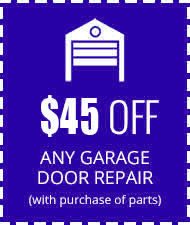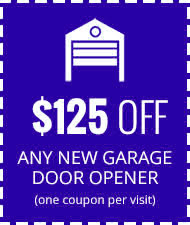Power companies tell us that almost half of our power consumption is tied to heating and cooling your home. Out of these two, heating makes up the lion share. This means that heating is single largest source of your electric costs. Neighborhood Garage Door Service of Charlotte, NC knows that these costs can add up quickly.
Transitioning from hotter weather to colder weather always results in a bump in your power bill. However, it shouldn’t be a huge difference. If you are seeing a dramatic spike in your power bill heading into winter, you may have fallen for one of the classic blunders in heating and cooling your home.
Enjoying your fireplace too often
Fireplaces are cozy. They’re romantic. They’re festive. They may also be causing your power bill to go up.
How can fireplaces make your house colder?! It seems counterintuitive, but it’s true. Most of the heat that your fireplace produces is lost up the chimney. This hot air updraft can also have the effect of pulling ambient warm air in your room up the flue and out of your house. The immediate radiating heat can warm your toes on the hearth, but the net effect is often a colder room.
Heating when no one’s home
Any time the house is going to be empty for a while, your heat should be off. This is especially true of vacations. Setting the thermostat for vacation is pretty easy. You just set it and then reset it when you get home.
It’s a little more difficult to remember to do this everyday when everyone leaves for the day. This is why a programmable thermostat is so important. You can have it set to drop the temperature several degrees while you’re gone, and then have it return to a comfortable temperature just before you typically come home.
Another benefit of a programmable thermostat is night time settings. Many people like it a little colder while sleeping. When you’re under all those blankets, you can take advantage of the energy savings! Set the thermostat to drop overnight and climb back up before your feet hit that cold floor.
Not opening curtains during the day
Even if you don’t have solar panels, you need to be taking advantage of the sun’s energy. Throw those curtains back during the day and soak up some rays! Depending on how many windows you have, and the direction they point, you can get an increase of several degrees on a sunny day. Don’t waste that free heating.
Space heaters
It might seem like using a small space heater to heat just one room would be more efficient, but in the long run it isn’t. Space heaters are far less efficient at heating an area that central heat. They can also pose a fire hazard if they become the main method of heating a given area.
Not locking windows
This is a small one, but it can add up over the course of a year. Closing your windows prevents drafts, for the most part. Locking your windows is not only more secure, it also makes a tighter seal that keeps wind from pushing its way in.
Shutting up vents
Closing a few air vents isn’t too bad. However, closing more than 10% of your system’s vents causes a change in the air pressure within the heating ducts. This causes the system to run less efficiently and increasing power consumption.
Cranking the heat to warm up faster
We all do it. We wake up cold, or step out of the warm shower to a freezing house. So, we run to the thermostat and crank it to 80° so that it will hurry up and get warm. There’s a major flaw here: it doesn’t work. No matter what you set the thermostat to, the system heats at the same rate.
If you set it to 75° and it takes 10 minutes to get there, it just means it may take 15 minutes to get to 80°. Your thermostat is dumb. It doesn’t know you’re in a hurry. I just pushes the same temperature of warm air until the ambient temperature reaches your set limit. The problem comes in when you forget to cut it back for a while. This means that you push more warm air than is necessary, thereby wasting power.
Not having an insulated garage door
Most people don’t take their garage into account when considering more efficiently heating and cooling your home. It’s a large space that is usually not tied into your central heating and air systems. This means that they are more susceptible to changes in temperature.
To cut back on the impact this has on your home’s energy costs you need to insulate. Make sure the walls of your garage are properly insulated. This will cut back on heat transfer into the garage as well as into the home from the garage.
The weakest link in heat transfer into your garage is the overhead door. Make sure that your garage door is insulated. You also should regularly check weather stripping and the bottom seal for damage. Repair or replace them immediately if they are damaged.
If you need help with repairs, replacement, or even installation of a new door, call Neighborhood Garage Door Service of Charlotte, North Carolina. We have everything you need to get your garage sealed up and efficient for the winter. Contact us today!







